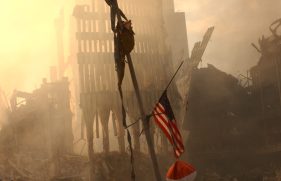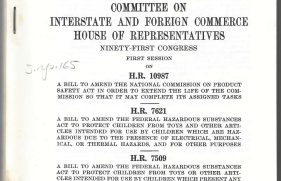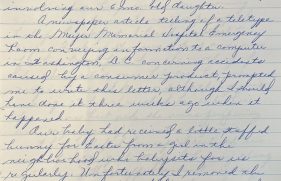Members of Congress and distinguished guests, my fellow Americans, we gather here today to right a grave wrong. More than 40 years ago, shortly after the bombing of Pearl Harbor, 120,000 persons of Japanese ancestry living in the United States were forcibly removed from their homes and placed in makeshift internment camps. This action was taken without trial, without jury. It was based solely on race, for these 120,000 were Americans of Japanese descent.
Yes, the Nation was then at war, struggling for its survival, and it’s not for us today to pass judgment upon those who may have made mistakes while engaged in that great struggle. Yet we must recognize that the internment of Japanese-Americans was just that: a mistake. For throughout the war, Japanese-Americans in the tens of thousands remained utterly loyal to the United States. Indeed, scores of Japanese-Americans volunteered for our Armed Forces, many stepping forward in the internment camps themselves. The 442d Regimental Combat Team, made up entirely of Japanese-Americans, served with immense distinction to defend this nation, their nation. Yet back at home, the soldiers’ families were being denied the very freedom for which so many of the soldiers themselves were laying down their lives.
Congressman Norman Mineta, with us today, was 10 years old when his family was interned. In the Congressman’s words: “My own family was sent first to Santa Anita Racetrack. We showered in the horse paddocks. Some families lived in converted stables, others in hastily thrown together barracks. We were then moved to Heart Mountain, Wyoming, where our entire family lived in one small room of a rude tar paper barrack.” Like so many tens of thousands of others, the members of the Mineta family lived in those conditions not for a matter of weeks or months but for 3 long years.
The legislation that I am about to sign provides for a restitution payment to each of the 60,000 surviving Japanese-Americans of the 120,000 who were relocated or detained. Yet no payment can make up for those lost years. So, what is most important in this bill has less to do with property than with honor. For here we admit a wrong; here we reaffirm our commitment as a nation to equal justice under the law.
I’d like to note that the bill I’m about to sign also provides funds for members of the Aleut community who were evacuated from the Aleutian and Pribilof Islands after a Japanese attack in 1942. This action was taken for the Aleuts’ own protection, but property was lost or damaged that has never been replaced.
And now in closing, I wonder whether you’d permit me one personal reminiscence, one prompted by an old newspaper report sent to me by Rose Ochi, a former internee. The clipping comes from the Pacific Citizen and is dated December 1945.
“Arriving by plane from Washington,” the article begins, “General Joseph W. Stilwell pinned the Distinguished Service Cross on Mary Masuda in a simple ceremony on the porch of her small frame shack near Talbert, Orange County. She was one of the first Americans of Japanese ancestry to return from relocation centers to California’s farmlands.” “Vinegar Joe” Stilwell was there that day to honor Kazuo Masuda, Mary’s brother. You see, while Mary and her parents were in an internment camp, Kazuo served as staff sergeant to the 442d Regimental Combat Team. In one action, Kazuo ordered his men back and advanced through heavy fire, hauling a mortar. For 12 hours, he engaged in a singlehanded barrage of Nazi positions. Several weeks later at Cassino, Kazuo staged another lone advance. This time it cost him his life.
The newspaper clipping notes that her two surviving brothers were with Mary and her parents on the little porch that morning. These two brothers, like the heroic Kazuo, had served in the United States Army. After General Stilwell made the award, the motion picture actress Louise Allbritton, a Texas girl, told how a Texas battalion had been saved by the 442d. Other show business personalities paid tribute — Robert Young, Will Rogers, Jr. And one young actor said: “Blood that has soaked into the sands of a beach is all of one color. America stands unique in the world: the only country not founded on race but on a way, an ideal. Not in spite of but because of our polyglot background, we have had all the strength in the world. That is the American way.” The name of that young actor — I hope I pronounce this right — was Ronald Reagan. And, yes, the ideal of liberty and justice for all — that is still the American way.
Thank you, and God bless you. And now let me sign H.R. 442, so fittingly named in honor of the 442d.
Thank you all again, and God bless you all. I think this is a fine day.




